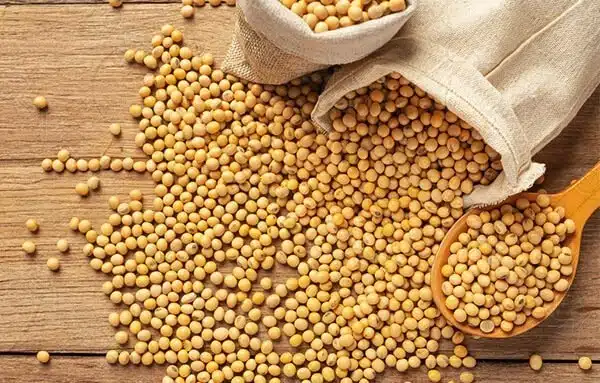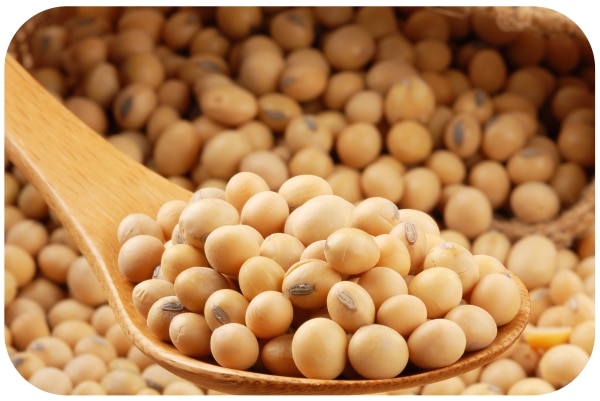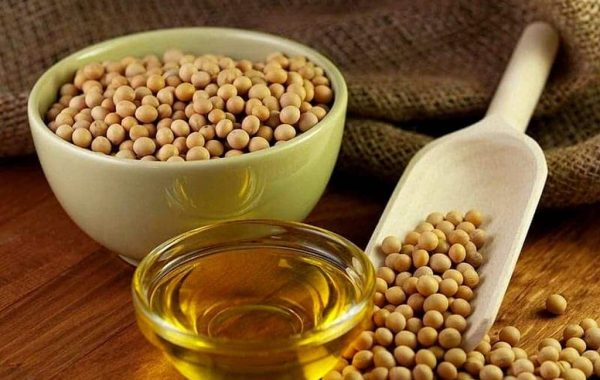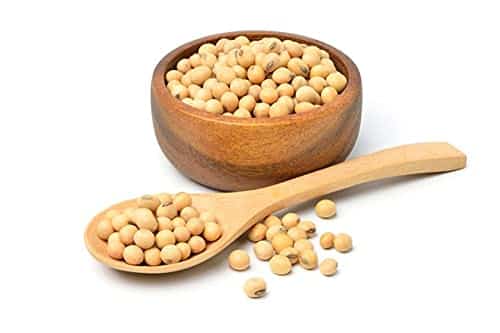Soybean seeds are a versatile and widely used crop that has been cultivated for thousands of years. With their high protein content and numerous health benefits, soybeans have become a staple in many diets around the world. In this article, we’ll take a closer look at soybean seeds, their history, uses, and nutritional value.
Soybean seeds, also known as soya beans, are a type of legume native to East Asia. They are an important crop worldwide and are widely used for their high protein content and oil content. Soybeans can be consumed in a variety of forms, including whole beans, soy milk, tofu, and soy sauce, and are also used in many industrial applications. In this article, we will explore the history, nutritional value, and various uses of soybean seeds
- History of Soybean Seeds
Soybeans have been cultivated in China for thousands of years and were introduced to Japan and Korea in the 7th and 9th centuries, respectively. They were later introduced to Europe and the Americas in the 18th and 19th centuries. Soybeans were originally used primarily for their nitrogen-fixing properties, which helped to enrich the soil, but they eventually became an important source of food and oil.
- Nutritional Value of Soybean Seeds
Soybeans are a rich source of protein, fiber, and essential nutrients, including iron, calcium, and vitamin C. They are also a good source of healthy fats, including omega-3 fatty acids, and are naturally cholesterol-free. Soybeans contain all nine essential amino acids, making them a complete protein source for vegetarians and vegans.
- Culinary Uses of Soybean Seeds
Soybeans are used in a variety of culinary applications, including as a source of protein in vegetarian and vegan diets. Some common uses of soybeans include:
- Edible Soybean Products
- Soybean Oil
- Soy Milk and Tofu
Edible soybean products include whole soybeans, soy nuts, and roasted soybeans. These can be eaten as a snack or added to salads and other dishes for added protein and fiber.
Soybean oil is a popular cooking oil due to its high smoke point and mild flavor. It is also used in many processed foods, including margarine, mayonnaise, and salad dressings.
Soy milk and tofu are popular dairy alternatives for those who are lactose intolerant or vegan. Soy milk is made by soaking and grinding soybeans and can be used in a variety of recipes. Tofu is made by coagulating soy milk and pressing the resulting curds into blocks, which can be used in a variety of savory and sweet dishes.


Industrial Uses of Soybean Seeds
Soybean seeds have several industrial applications due to their unique chemical composition. The following are some of the most common industrial uses of soybean seeds:
- Animal Feed
Soybean seeds are a rich source of protein, making them an excellent ingredient for animal feed. Soybean meal, a byproduct of soybean oil extraction, is used in animal feed for poultry, cattle, and swine. The high protein content of soybean meal makes it a valuable component of livestock diets, helping to promote healthy growth and development.
- Biodiesel Production
Soybean oil is used to produce biodiesel, an alternative fuel source that can be used in diesel engines. Biodiesel production from soybean oil is an environmentally friendly alternative to traditional fossil fuels, as it emits fewer pollutants and greenhouse gases.
- Soy-based Plastics and Textiles
Soybean oil can be used to produce a range of plastic and textile products. Soy-based plastics are biodegradable and have a lower carbon footprint than traditional petroleum-based plastics. Soy-based textiles, such as soy silk, are soft and durable, making them an attractive alternative to traditional textiles.
Medicinal Uses of Soybean Seeds
In addition to their nutritional benefits, soybean seeds have several medicinal applications. The following are some of the most common medicinal uses of soybean seeds:
- Reducing Cholesterol
Soybean seeds contain compounds called isoflavones, which have been shown to help reduce cholesterol levels in the blood. By consuming soybean seeds regularly, individuals may be able to lower their risk of heart disease and stroke.
- Bone Health
Soybean seeds are a rich source of calcium and other minerals that are essential for bone health. Consuming soybean seeds regularly may help reduce the risk of osteoporosis and other bone-related conditions
- Cancer Prevention
Some studies have suggested that consuming soybean seeds regularly may help reduce the risk of certain types of cancer, including breast and prostate cancer. However, more research is needed to confirm these findings.


Potential Health Risks of Soybean Consumption
Soybeans are a popular source of protein and are commonly consumed in various forms, such as tofu, soy milk, and edamame. However, there have been concerns about the potential health risks associated with soybean consumption. In this article, we will discuss some of the possible health risks of soybean consumption and provide insights on how to consume soybeans safely.
- Soy Allergies
One of the most common risks associated with soy consumption is an allergic reaction. Soy allergies affect approximately 0.4% of children and 0.3% of adults. Symptoms of soy allergy include hives, itching, swelling, and in severe cases, anaphylaxis. People with soy allergies should avoid soy and soy-containing products.
- Thyroid Function
There has been some concern that soybeans may affect thyroid function due to their high content of compounds known as isoflavones. Isoflavones are phytoestrogens that can interfere with the body’s absorption of iodine, which is essential for thyroid hormone production. However, research on this topic is mixed, and most studies suggest that moderate soy consumption is safe for thyroid health.
- Digestive Issues
Soybeans contain oligosaccharides, which are complex sugars that are difficult for the body to digest. This can lead to digestive issues such as gas, bloating, and diarrhea. However, soaking or sprouting soybeans before consuming them can reduce the oligosaccharide content and make them easier to digest.
- Hormonal Effects
The isoflavones in soybeans have estrogen-like properties, which have led to concerns about their effects on hormonal health. Some studies have suggested that consuming large amounts of soy products may affect menstrual cycles and fertility in women. However, most research suggests that moderate soy consumption is safe for hormonal health.
- Genetically Modified Organisms (GMOs)
The vast majority of soybeans grown in the United States are genetically modified organisms (GMOs). GMOs have been linked to various health concerns, including allergic reactions, antibiotic resistance, and environmental damage. To avoid GMOs, it is recommended to look for organic and non-GMO certified soy products.
The vast majority of soybeans grown in the United States are genetically modified organisms (GMOs). GMOs have been linked to various health concerns, including allergic reactions, antibiotic resistance, and environmental damage. To avoid GMOs, it is recommended to look for organic and non-GMO certified soy products.
FAQs
Soybeans are not inherently bad for you, but they come with potential health risks such as soy allergies, digestive issues, and hormonal effects. However, moderate soy consumption is generally safe for most people.
There is some concern that soybeans may affect thyroid function due to their high content of isoflavones. However, most research suggests that moderate soy consumption is safe for thyroid health.
The vast majority of soybeans grown in the United States are genetically modified organisms (GMOs). To avoid GMOs, it is recommended to look for organic and non-GMO certified soy products.
The isoflavones in soybeans have estrogen-like properties, which have led to concerns about their effects on hormonal health. However, most research suggests that moderate soy consumption is safe for hormonal health.
Tasty & Quality Approved Agricultural Products
are Available Here!
We supply and export great-quality Bold Peanuts, Java Peanuts, TJ Peanuts, Fresh Red Onion, White Garlic, Yellow Maize, Dry Red Chill and In Shell Peanuts with 100% customer satisfaction all over the world.

